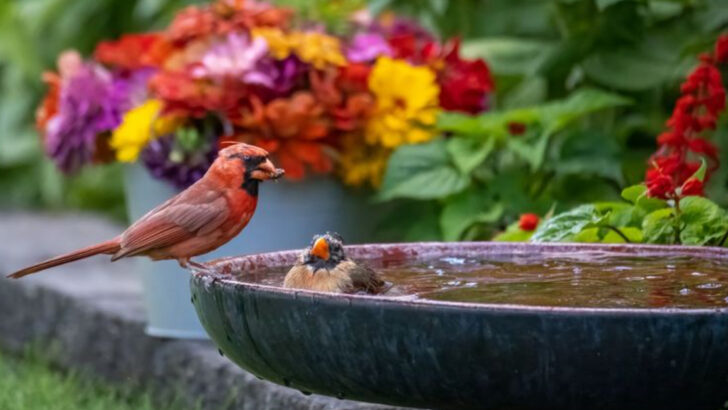A garden without birds is like a song without music—something is missing. These tiny, feathered visitors do far more than just brighten up your mornings with cheerful melodies. They’re hardworking little allies, keeping your garden thriving in ways you may not even realize.
From devouring pesky insects to spreading seeds and pollinating flowers, birds play a major role in maintaining a healthy outdoor space. Their presence can mean fewer pesticides, better soil, and even natural weed control. Who knew a few flapping wings could make such a difference?
But it’s not just about practicality. Birds bring life, movement, and a sense of peace to any garden. Watching them flit from branch to branch or splash around in a birdbath is its own kind of therapy.
So, if you want a garden that flourishes naturally, it’s time to welcome these winged wonders. Let’s dive into the incredible ways birds help your garden thrive!
Natural Pest Control
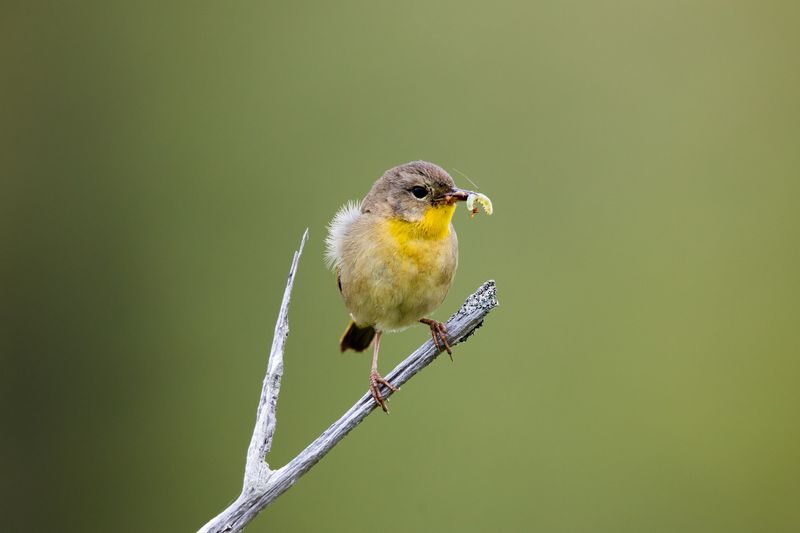
Birds are exceptional allies in controlling garden pests. Species like sparrows and robins feed on insects, thus keeping their populations in check. This natural pest control reduces the need for harmful pesticides, promoting a healthier garden ecosystem. By attracting birds, you can enjoy an organic approach to managing pests. Encourage their presence by providing nesting sites and a fresh water source. This symbiotic relationship benefits both your plants and the birds, ensuring a balanced environment. Gardeners can witness a reduction in pest-related damage, allowing plants to flourish without the interference of chemical treatments.
Pollination Partners
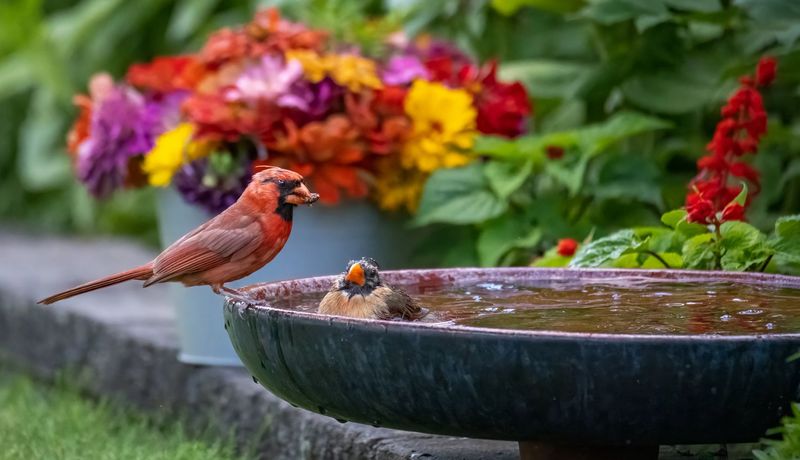
Birds like hummingbirds are excellent pollinators, aiding in the reproduction of flowering plants. As they feed on nectar, these birds transfer pollen from one bloom to another. This process is vital for the production of fruits and seeds. Creating a bird-friendly garden with diverse flowering plants can enhance pollination rates. It’s a beautiful cycle that supports both plant diversity and bird survival. Moreover, the presence of birds adds an aesthetic element, turning your garden into a lively and colorful sanctuary. Hosting pollinators like birds ensures a flourishing and dynamic garden ecosystem.
Soil Aeration and Fertilization
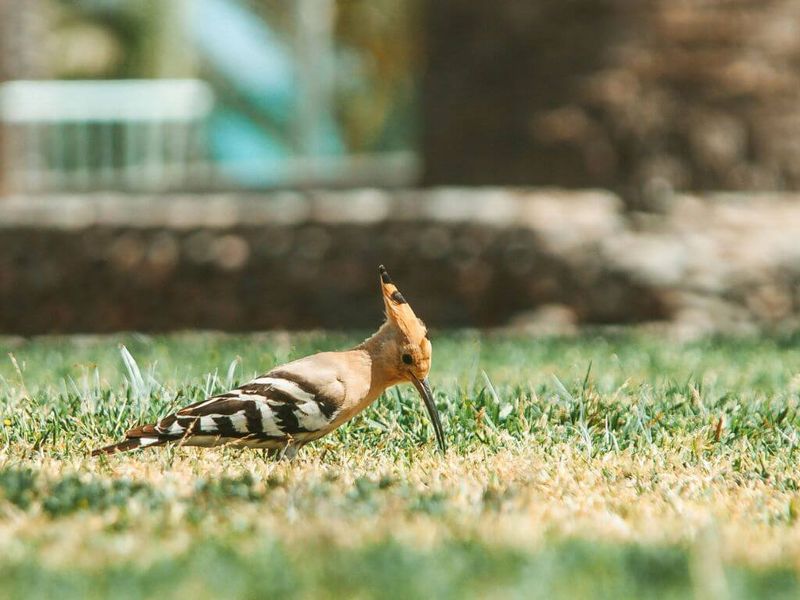
As birds forage for food, they naturally aerate the soil, promoting healthy root systems. Their droppings also contribute to soil fertility by adding essential nutrients. This natural process is crucial for maintaining vibrant plant growth. Encouraging a variety of birds to visit your garden can lead to improved soil conditions. The constant movement of birds helps to break down organic matter, enriching the soil structure. This organic method of soil care enhances plant health and supports sustainable gardening practices. Your garden thrives as birds provide this essential service, ensuring robust and resilient plant life.
Weed Control Assistance
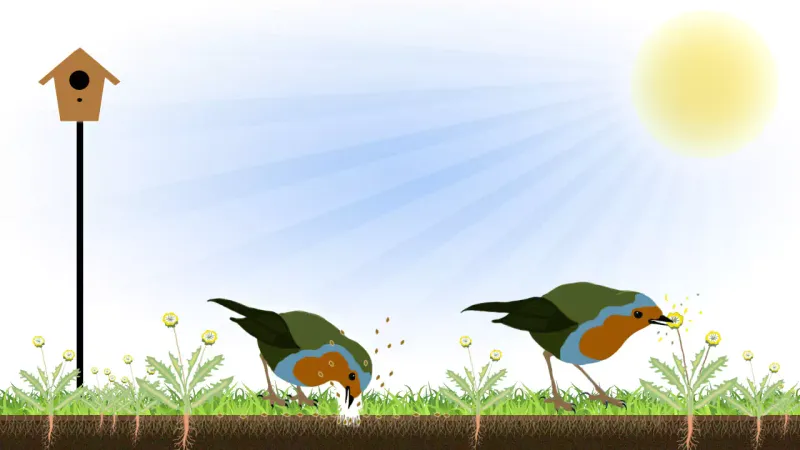
Birds help in controlling weeds by consuming seeds before they can germinate. This natural seed predation is an effective way to manage unwanted plants in your garden. Providing a habitat for birds can reduce the reliance on manual weeding or chemical herbicides. Species like finches and sparrows are particularly adept at seed consumption. By encouraging these birds, you promote a balanced garden environment, reducing the dominance of invasive weeds. This form of weed control is both effective and eco-friendly, allowing for less maintenance and a more enjoyable garden experience.
Natural Beauty and Melody
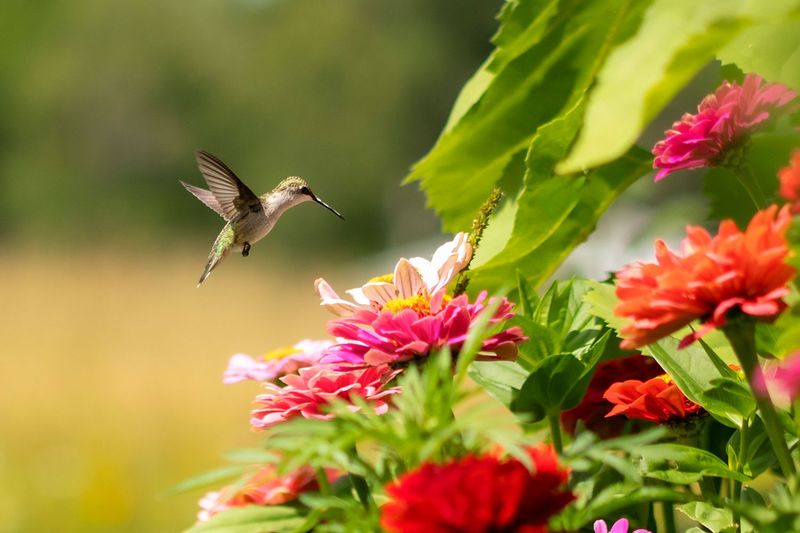
Birds bring unparalleled beauty and melody to your garden. Their colorful plumage and enchanting songs create a serene and inviting atmosphere. Observing birds can also be a delightful pastime, offering relaxation and mental well-being. Their presence transforms a garden into a vibrant, living space. To attract diverse bird species, provide feeders and plant a variety of shrubs and trees. This not only enhances your garden’s aesthetics but also supports bird populations. The natural beauty and melodies of birds enrich your outdoor space, making it a haven for both wildlife and people.
Seasonal Change Indicators
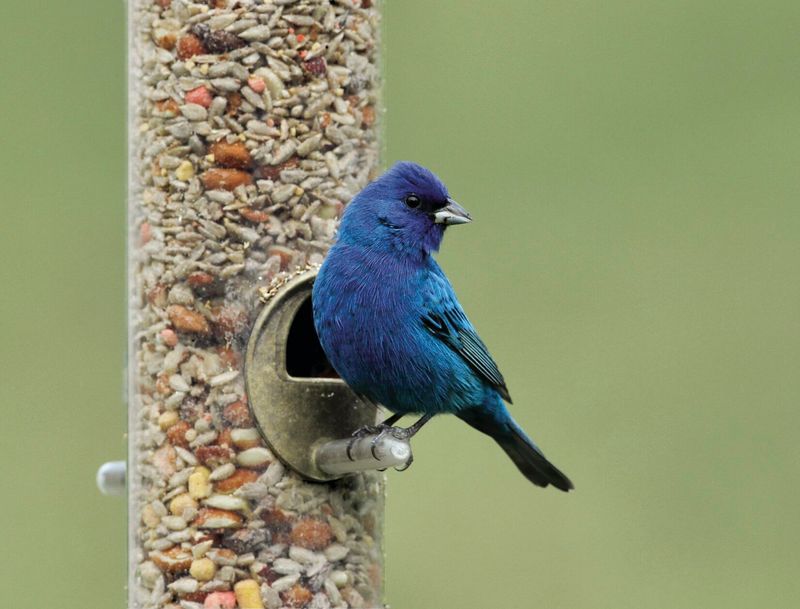
Birds are excellent indicators of seasonal changes, signaling shifts in weather patterns and ecological cycles. Observing bird behavior can inform gardeners about the best planting times. For instance, the return of certain migratory birds often heralds spring. This knowledge allows for timely garden preparation and planting strategies. Birds like swallows and warblers can guide gardeners in aligning their activities with natural cycles. Their presence ensures a garden in tune with nature’s rhythm. By paying attention to bird patterns, gardeners can make informed decisions, optimizing their planting schedules for better results.
Insect Population Monitoring
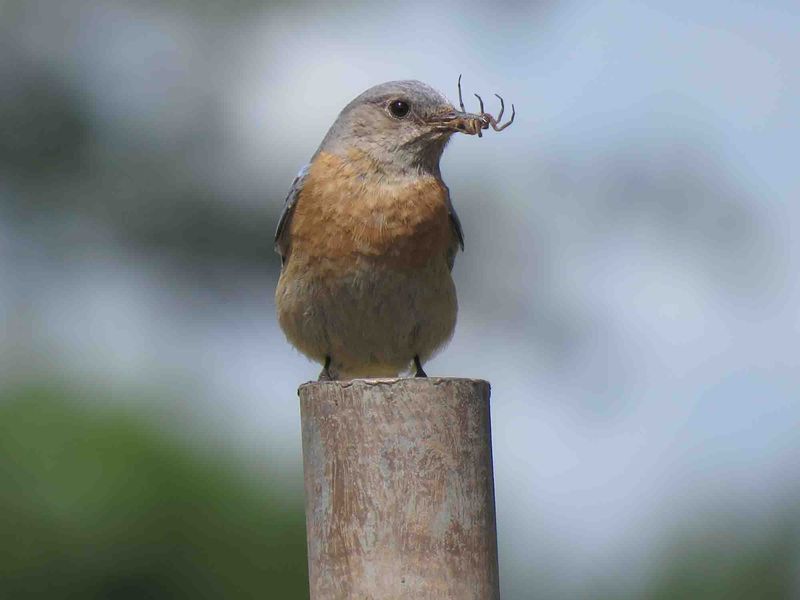
Birds offer valuable insights into insect population dynamics within a garden. Their feeding habits can indicate an increase or decrease in certain insect species. This natural monitoring system allows gardeners to detect imbalances early. By watching bird activity, gardeners can address potential pest outbreaks before they escalate. Encouraging birds to visit your garden enhances this monitoring process. It’s a proactive way to manage garden health, minimizing the need for human intervention. Through their observational role, birds contribute to maintaining ecological balance, ensuring a harmonious garden environment where plants and wildlife coexist successfully.
Educational Opportunities
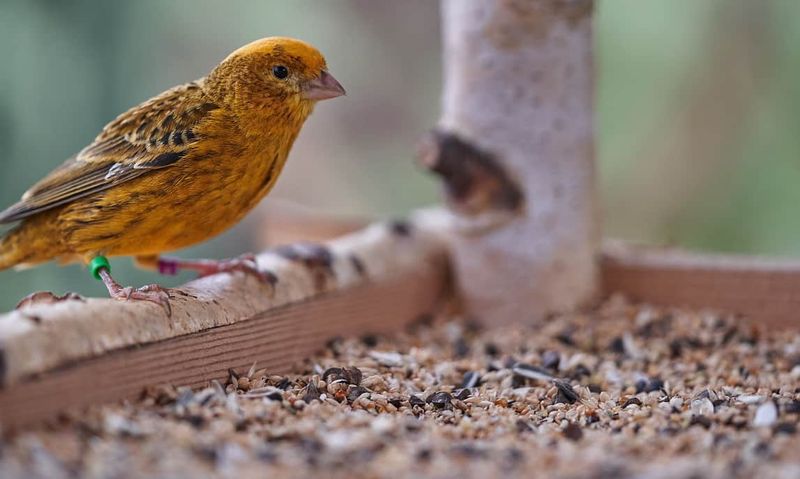
Having birds in your garden provides unique educational opportunities for all ages. Observing their behaviors and interactions offers insights into avian life and ecological systems. Families can learn about different bird species, their diets, and their roles in the environment. This hands-on learning encourages a deeper appreciation for nature and fosters environmental stewardship. Birdwatching can be a fun and educational hobby, sparking curiosity and wonder. By creating a bird-friendly garden, you invite a world of discovery right to your doorstep. This living classroom enriches knowledge and promotes a connection with the natural world.
Stress Reduction and Well-being
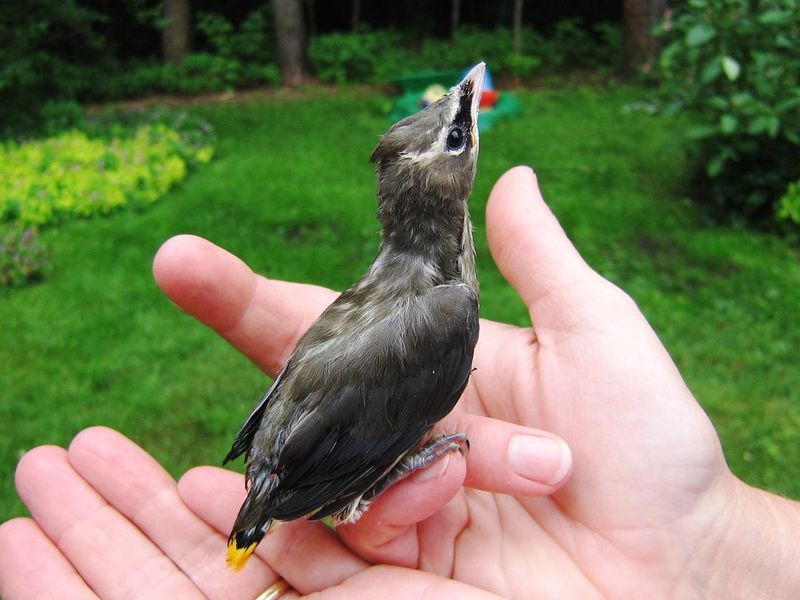
Interacting with birds in your garden promotes relaxation and reduces stress. The soothing sounds of bird songs and the peacefulness of nature provide a tranquil escape from daily pressures. Studies show that nature experiences can enhance mental health and well-being. Creating a garden that attracts birds allows you to enjoy these therapeutic benefits regularly. By immersing yourself in this environment, you can foster a sense of calm and rejuvenation. The presence of birds contributes to a serene atmosphere, making your garden a sanctuary for relaxation and mindfulness. This natural haven supports emotional and psychological health.
Enhanced Biodiversity
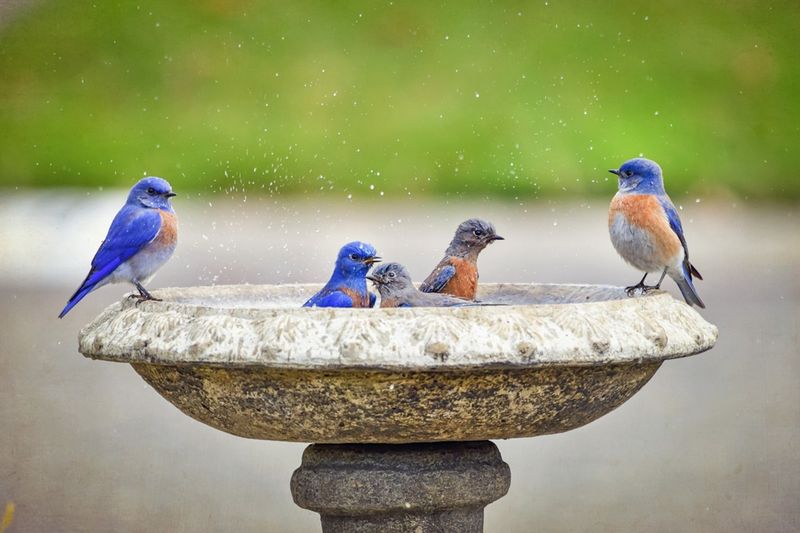
Encouraging birds in your garden boosts local biodiversity. Birds play a significant role in maintaining ecological balance by participating in food webs and nutrient cycles. Their presence attracts other wildlife, creating a dynamic habitat. A biodiverse garden is more resilient to pests and changes in climate. By planting native species and providing water sources, you can support bird populations and enhance biodiversity. This interconnected ecosystem benefits both flora and fauna, fostering a thriving natural environment. Birds, by promoting biodiversity, ensure a robust and sustainable garden that supports diverse life forms.
Seed Dispersal Agents
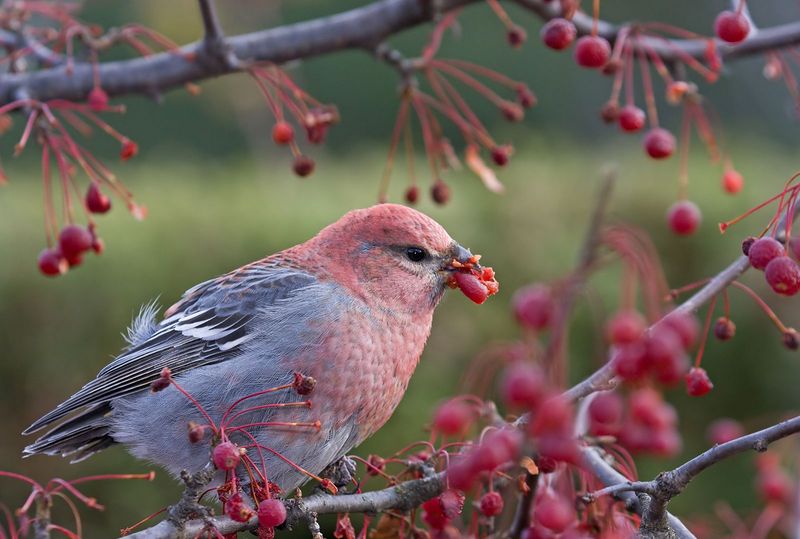
Birds act as seed dispersal agents, aiding plant propagation. As they consume fruits and berries, seeds are carried to new locations and deposited through droppings. This natural dispersal method contributes to plant diversity and regeneration. By supporting bird populations, you enhance this ecological service in your garden. Planting fruit-bearing trees and shrubs encourages this symbiotic relationship. Birds play a vital role in expanding plant ranges, promoting genetic diversity and resilience. This continuous cycle of seed dispersal enriches your garden, ensuring a wide variety of plant species thrive. Birds, as dispersal agents, support healthy plant communities.

